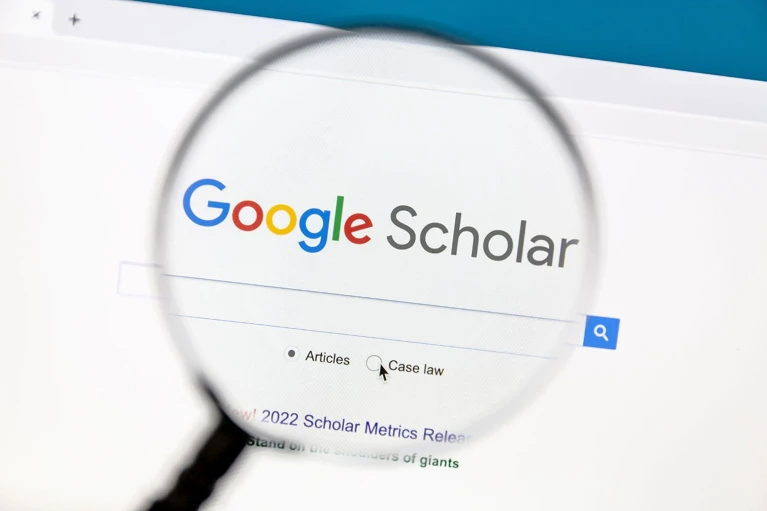As Google Scholar celebrates its 20th anniversary this week, the search engine that has become an indispensable tool for researchers worldwide faces growing competition in an age of rapid technological advancements. With the rise of artificial intelligence (AI)-powered platforms offering more specialized services, questions are being raised about whether Google Scholar can maintain its dominance in the scholarly search space.
Launched in 2004, Google Scholar has fundamentally transformed the way scientists access research. In its early years, it was revolutionary: researchers could access a vast range of scholarly works, including book chapters, reports, preprints, and documents in multiple languages. Its ability to bypass paywalls, offering free access to full-text articles, set it apart from competitors like Elsevier’s Scopus and Web of Science.
However, as AI technologies continue to evolve, some experts believe that Google Scholar may face a new wave of challenges. Jevin West, a computational social scientist at the University of Washington, argues that AI-powered tools are emerging that could rival Google Scholar’s established capabilities. “If there was ever a moment when Google Scholar could be overthrown as the main search engine, it might be now,” says West.
AI-driven platforms such as ChatGPT and specialized research tools are already starting to take a larger share of academic searches. Researchers are increasingly using these AI systems to search, review, and summarize academic papers. For Aaron Tay, an academic librarian at Singapore Management University, Google Scholar was once the go-to tool, but he now relies more on AI-driven platforms. “Recently, I started using other AI tools,” Tay admits, though he still keeps Google Scholar at the top of his list.
Despite these shifts, many believe that Google Scholar’s size and deeply entrenched role in the scientific community make it difficult to dethrone. According to West, “It would take a lot to overthrow” the platform, considering its unparalleled reach and resources.
The AI Competition
Over the past few years, new players have emerged to challenge Google Scholar’s supremacy. OpenAlex, launched in 2022, is one such example. Building on Microsoft’s discontinued Academic Graph, OpenAlex offers a comprehensive scholarly index, and notably, allows users to download the entire data set for free — something Google Scholar restricts. “They are doing what we wanted Google Scholar to do,” says Alberto Martín Martín, a bibliometrics researcher at the University of Granada.
Another contender, Semantic Scholar, launched in 2015, leverages AI to generate paper summaries and identify the most relevant citations. Similarly, Consensus, introduced in 2022, taps into Semantic Scholar’s database to provide answers to research questions informed by literature. These AI-powered tools are gaining popularity for their ability to sift through large volumes of data and provide insightful summaries and recommendations. Academic librarian Tay particularly favors Undermind, which uses an agent-based search system that mimics a human’s approach to reading and analyzing papers.
Though these competitors are closing in, Google Scholar’s size remains its greatest advantage. As of the latest reports, it continues to attract over 100 million visits per month, underscoring its entrenched status in the scientific community.
Google Scholar’s AI Response
Google Scholar is not standing still. Over the years, it has incorporated AI to improve its search capabilities. It uses AI to rank articles by relevance and suggest further queries, and its new semantic search capabilities aim to understand the intent behind a researcher’s query. Most recently, Google Scholar added AI-generated outlines to its PDF reader, which enhances the user experience.
However, Acharya acknowledges the challenges in developing AI-generated summaries of research conclusions. Unlike standard search engines, Google Scholar has yet to implement a feature that succinctly summarizes findings from multiple papers, a development seen in regular Google searches. “Summarizing conclusions from multiple papers in a way that is succinct and includes important context is challenging,” Acharya explains.
A Growing Divide
Despite these advancements, Google Scholar’s lack of transparency is becoming an increasing concern. Scholars are frustrated by its opaque algorithms, which remain a mystery. Furthermore, its restrictions on bulk downloads limit researchers’ ability to use the platform for bibliometric analysis, a key tool for many in the field of scientometrics.
In contrast, AI-powered platforms like OpenAlex and Semantic Scholar offer more insight into their data and allow users to download results for further analysis. This level of transparency is starting to appeal to researchers, particularly those in the field of bibliometrics, where detailed data analysis is crucial.
The Future of Scholarly Search
As the AI revolution continues to reshape the landscape of scholarly research, Google Scholar’s future remains uncertain. While its sheer size and comprehensive access to academic content provide significant advantages, newer AI-driven tools are pushing the boundaries of what researchers can expect from a search engine. Tools that offer enhanced data transparency, in-depth analysis, and tailored research summaries are already making waves, and Google Scholar will need to innovate further to maintain its position.
In the words of Acharya, “The more we can all do, the better it is for the advancement of science.” Whether Google Scholar can adapt to these changes and stay ahead in an increasingly competitive landscape remains to be seen, but it is clear that the AI revolution is here, and it’s reshaping the tools researchers rely on for their work.











